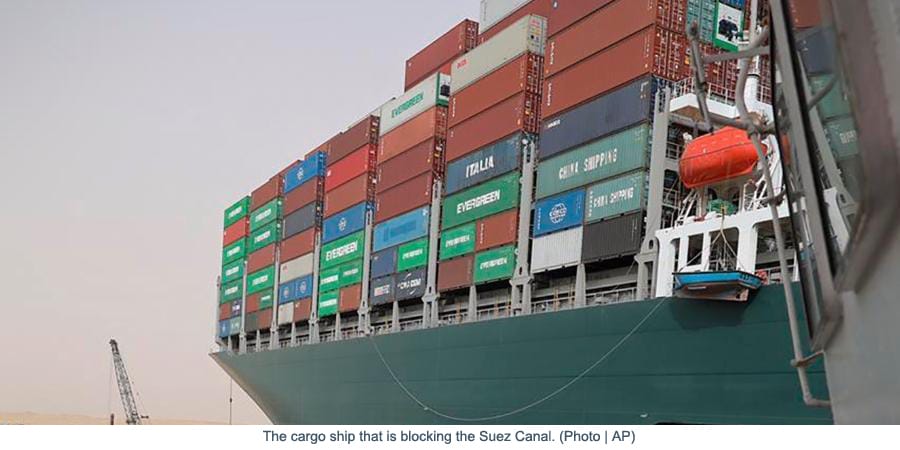A container vessel stranded in the Suez Canal, which has disrupted the passage of goods across the narrow river, would place further pressure on global supply chains that are already strained due to rebounding economic activity and tight shipping container supplies.
The blockage comes after the coronavirus pandemic and an increase in demand for supplies have already delayed shipments. Salvage attempts are underway, but experts warn that the process could take weeks.
Annually, the canal handles about 30% of global container traffic. If the trading route is closed, it is possible that 10% to 15% of global total trade would be impacted. (analysts from Moody’s Investors Service)
The Suez Canal is a convenient route for the U.S. importers of manufactured goods such as footwear and clothing from Southeast Asia and India.
If the process to reopen the waterway lags, ships are left with two options: sit and wait at the mouth of the canal or travel thousands of kilometers around South Africa’s Cape of Good Hope. The latter choice would delay the arrival of cargo by about a week. Even if the situation is resolved quickly, port congestion and further delays to an already constrained supply chain are inevitable.
Global supply chains are already under pressure from a range of factors, from a shortage of semiconductors to the deep freeze and large-scale power outage in Texas. Toyota Motor has halted a plant in the Czech Republic for 14 days starting Monday, and Ford Motor announced that production losses in the U.S. and Europe could dent its full-year pretax income by up to $2.5 billion. (news agency CTK)
A protracted disruption at the Suez Canal could throw a further wrench into the global economy’s recovery from the effects of the coronavirus pandemic.





Leave A Comment